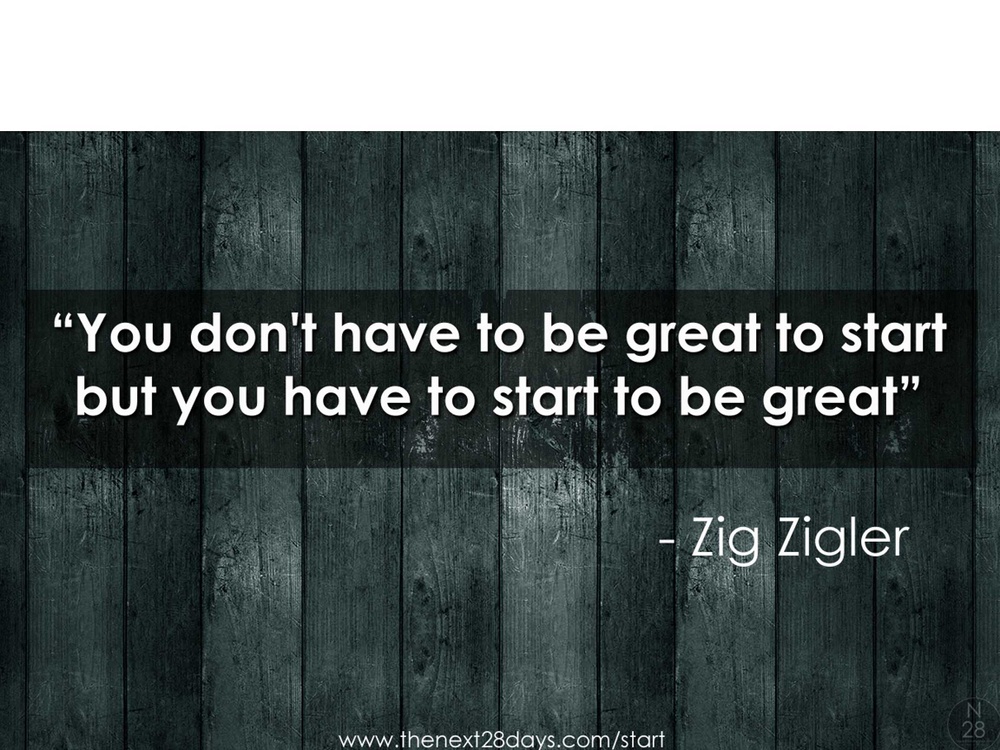Dan Martell

For decades, Zig Ziglar has been speaking and writing about personal development and has helped countless people achieve their dreams, both professionally and personally.
In the business world, closed-mindedness and an unbalanced lifestyle can bring down businesspeople that have real potential to succeed. Could that be you?
If so, then keep reading, because Zig Ziglar has a thing or two to teach us all about how to achieve real success in life.
1. Stop with the impractical dreaming and start with the realistic goal-making.
Some people have the tendency to set pretty far-fetched goals without giving any detailed thought to how they’re even going to get there.
According to Ziglar, it’s all about the details.
Set a goal that’s practical and preferably measurable. As an example, a good goal may be a sales revenue figure you might want to achieve for the month. Not only does it have a measurable amount to aim for, but it also has a deadline, which every realistic goal should have.
If you can identify the obstacles you need to overcome and develop a practical action plan, then you’ll be much more likely to achieve what you set out to do.
2. Look yourself in the mirror and tell yourself you can do anything.
Confidence is everything. One of the greatest quotes from Zig Ziglar is all about believing in yourself and having enough confidence to go after exactly what you want:
“Confidence is going after Moby Dick in a rowboat and taking the tartar sauce with you.”
In other words, don’t set goals that you don’t think you can actually achieve. Without confidence, you risk always sticking to the safe side of business, and living up to your fullest potential will be almost impossible.
3. Give generously through encouragement.
While you may experience a boost in confidence as others encourage you to succeed, don’t forget to return the favor.
As a motivational speaker, Ziglar is an enormous believer in encouraging others and has admitted that he can’t talk to someone without offering any encouragement to them.
He once said, “Encouragement is the fuel on which hope thrives,” which really emphasizes the fact that you can really achieve anything you want in life if you help other people achieve what they want as well.
4. Treat life like it’s a balancing act.
According to Ziglar, true success comes from living a balanced life. It’s become all too common that we see entrepreneurs, business professionals and workaholics focusing entirely on their career and working terribly long hours, thus neglecting other important aspects of their lives like family and health.
A great career is wonderful, but true happiness can only be experienced when all life aspects are given care and attention. Working on family relationships, enjoying your favorite hobbies and taking care of yourself both mentally and physically can have a dramatically positive impact on how you perform at work.
5. Stop worrying so much!
Zig says that he never worries, which is a pretty a bold statement to make, even for him. He emphasizes that worrying never helps in any situation and can actually work against what you’re trying to achieve.
Instead of focusing on all the negative things, focus on what you can do to be successful when you’re faced with obstacles.
6. Remember that home is where the heart is.
It’s not surprising to find that your career life can be affected by what’s going on at home or in your social life. Ziglar stresses that your home life needs to be in tip top shape if you want to be performing your best at work.
If you’re going through a tough time at home, take the time to focus on that so you’ll be able to give it everything you’ve got in your professional aspects of life. Nobody ever said it would always be easy, but remember that balance is really the major key to overall success and happiness.
7. Never stop learning.
Last but not least, you should be willing to commit to lifelong learning. Even at age 85, Ziglar considers himself to forever be a student in all aspects of life.
There will always be new things to learn, new things to do and new goals to be achieved. And if you have the drive to seize every new learning opportunity that comes along, then the possibilities for achievement will be absolutely limitless!
So, which one of these seven big business lessons are you most likely willing to take action on first?
Find this article helpful?
This is just a small sample! Register to unlock our in-depth courses, hundreds of video courses, and a library of playbooks and articles to grow your startup fast. Let us Let us show you!
Submission confirms agreement to our Terms of Service and Privacy Policy.
Already a member? Login
No comments yet.
Start a Membership to join the discussion.
Already a member? Login